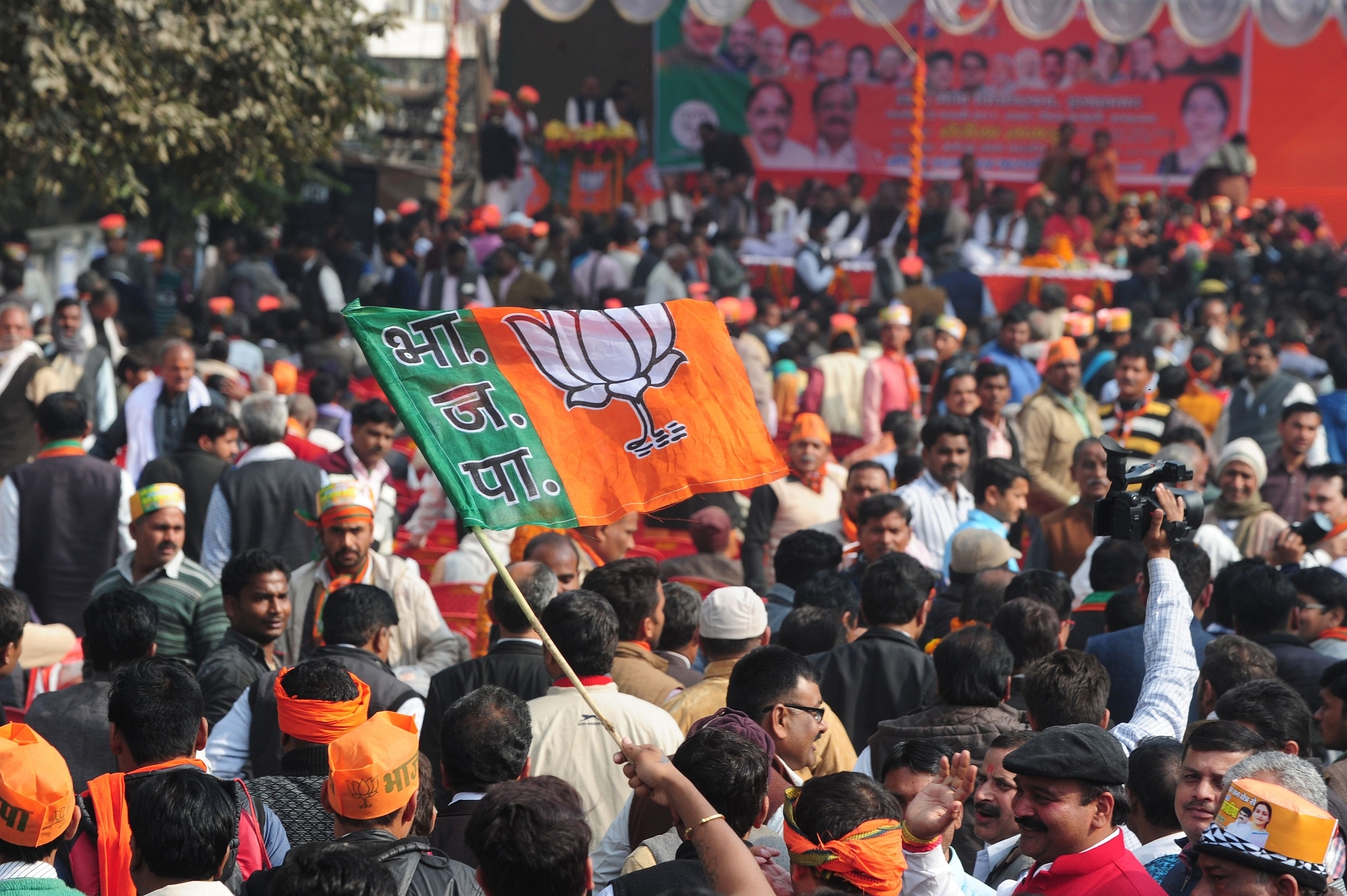Insta
BJP Banking On Modi Charisma And Jat Support To Sweep UP Polls

BJP supporters at a rally in Uttar Pradesh (Photo credit: SANJAY KANOJIA/AFP/Getty Images)
The Bharatiya Janata Party (BJP) has pinned its hopes, besides the (Narendra) Modi popularity, on the Jats in the crucial Uttar Pradesh elections, where the party hopes to repeat its performance in the 16th general election—when it won all the Lok Sabha seats from the region.
Religion and caste plays an important role in the elections, and this is apparent in western Uttar Pradesh, going to polls in the first two phases of the elections on 11 and 15 February. BJP will look up to the Jats, which has traditionally backed Ajit Singh’s Rashtriya Lok Dal (RLD), plays a decisive role in this region. It had swung BJP’s way after the communal riots in Muzaffarnagar in 2013.
Of the 140 seats going to polls in the first two phases of polls in Uttar Pradesh, BJP has given 56 tickets to Other Backward Class (OBC) candidates, including 15 tickets to Jats and four to Gurjar community members. Similarly, out of the total 370 candidates announced by the BJP, it has given 31 tickets to Kurmis, 25 to Koeris and 20 tickets to Lodhs, all of whom are OBCs. Constituting 18.5 per cent population, Muslims play a decisive role in electing a government in Lucknow. Although the community is spread across the state, it has a decisive voice in at least 122 of the 403 constituencies where it accounts for a fifth of the population and in some constituencies, accounts for as much as 50 per cent.
The importance of the community can be gauged from the fact that Bahujan Samaj Party (BSP) chief Mayawati, has fielded 97 Muslim candidates this time, the highest ever by the party. During the previous election in 2012, Mayawati had given tickets to 85 Muslim candidates.
Support Swarajya's 50 Ground Reports Project & Sponsor A Story
Every general election Swarajya does a 50 ground reports project.
Aimed only at serious readers and those who appreciate the nuances of political undercurrents, the project provides a sense of India's electoral landscape. As you know, these reports are produced after considerable investment of travel, time and effort on the ground.
This time too we've kicked off the project in style and have covered over 30 constituencies already. If you're someone who appreciates such work and have enjoyed our coverage please consider sponsoring a ground report for just Rs 2999 to Rs 19,999 - it goes a long way in helping us produce more quality reportage.
You can also back this project by becoming a subscriber for as little as Rs 999 - so do click on this links and choose a plan that suits you and back us.
Click below to contribute.
Latest